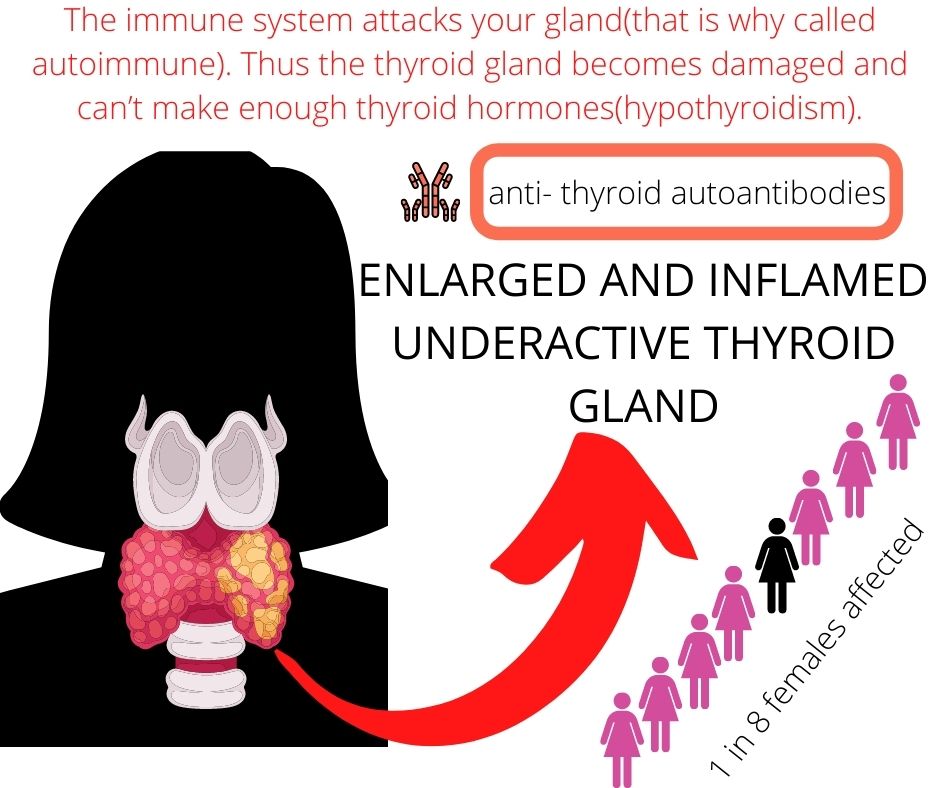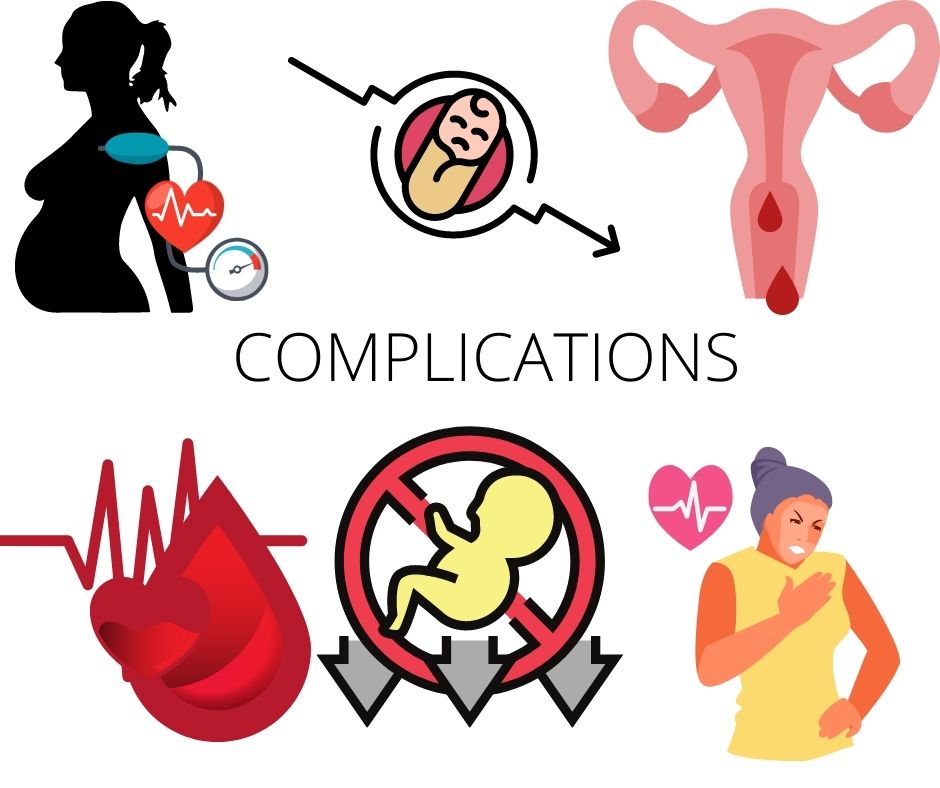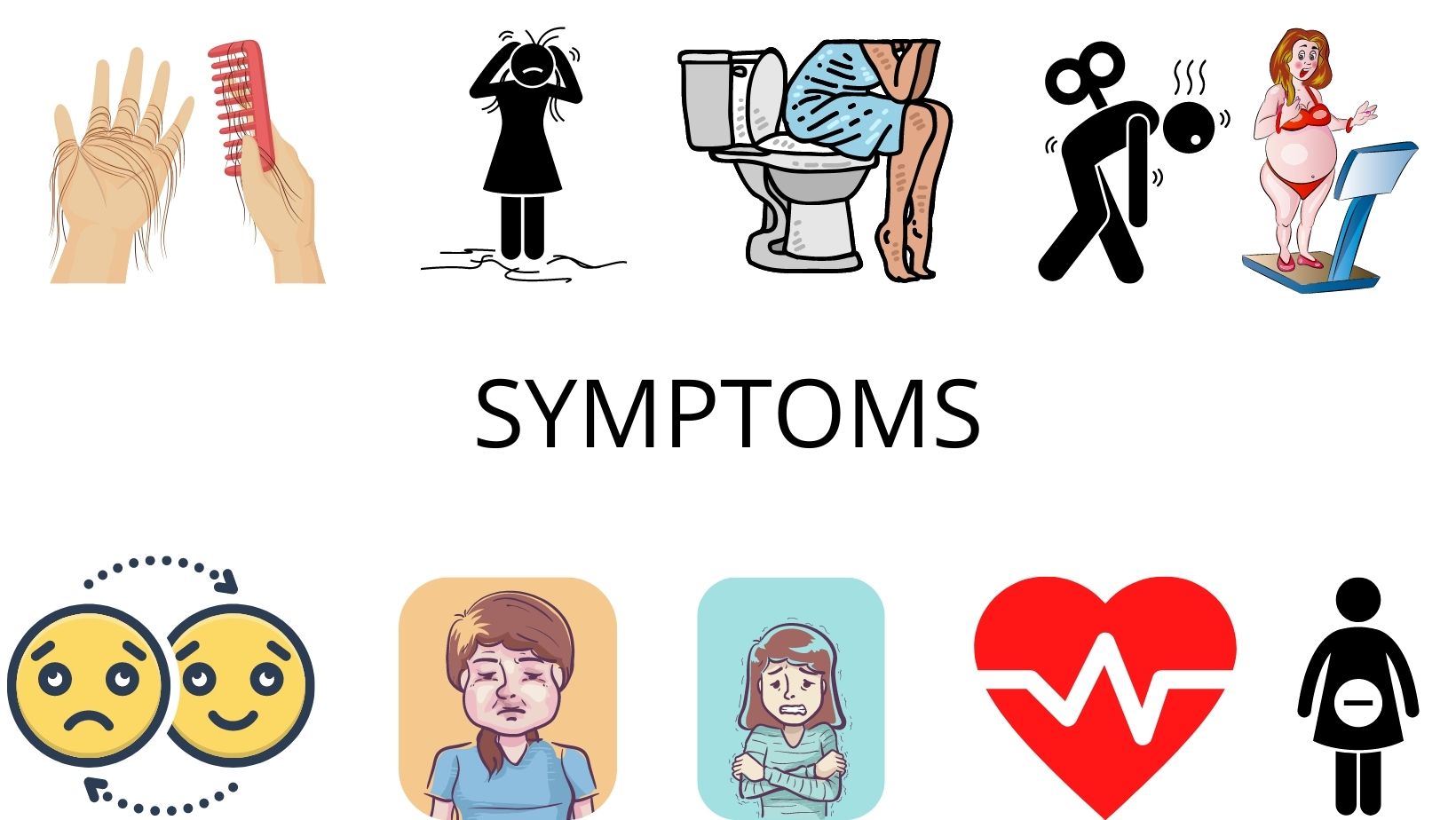THE DEFINITIVE GUIDE FOR THE TREATMENT OF HASHIMOTO'S THYROIDITIS
WHAT IS HASHIMOTO THYROIDITIS?
Hashimoto’s disease is an autoimmune disorder of the thyroid gland.
In this disease, your immune system attacks your gland(that is why called autoimmune). Thus the thyroid gland becomes damaged and can’t make enough thyroid hormones(hypothyroidism).
Over time, the ability of the thyroid gland to produce thyroid hormones often becomes impaired and leads to a gradual decline in function and eventually an underactive thyroid (Hypothyroidism).
RISK FACTORS
- Sex: 8 times more common in women than men.
- Age: more often appears between ages 40 to 60.
- Genetics: Your chance of developing Hashimoto’s disease increases if other family members have the disease.
- If you are suffering from any other autoimmune condition (such as diabetes type I, Addison's disease, rheumatoid arthritis, etc.)
- Smoking cigarettes and a sedentary lifestyle are also contributory factors in Hashimoto’s Thyroiditis.
COMPLICATIONS
Low levels of thyroid hormones can contribute to high cholesterol that can lead to heart disease
Severe untreated hypothyroidism may lead to myxedema coma, an extreme form of hypothyroidism in which the body’s functions get very slow and it becomes a life-threatening condition.
An untreated hypothyroidism during pregnancy can lead to:
- preeclampsia— ( high blood pressure in late pregnancy)
- anemia
- miscarriage
- low birth weight
- stillbirth
- congestive heart failure
These problems occur most often with severe hypothyroidism.
Thyroid hormones are important to a baby’s brain and nervous system development. Untreated hypothyroidism (especially during the first trimester) can cause low IQ and problems with normal development.
SYMPTOMS AND CAUSES
SYMPTOMS
- Many people with Hashimoto’s disease have no symptoms at first. As the disease slowly progresses, the thyroid gland gets larger in size and may cause the front of the neck to look swollen(goiter). It can cause a feeling of fullness in the throat and mostly its not painful
After many years, or even decades, damage to the thyroid causes it to shrink and the goiter to disappear.
- weight gain
- tiredness
- paleness or puffiness of the face
- joint and muscle pain
- constipation
- inability to get warm or cold intolerance
- difficulty getting pregnant
- hair loss or thinning
- irregular or heavy menstrual periods
- Depression, memory problems
- slowed heart rate
CAUSES
The exact cause of Hashimoto thyroiditis is not known yet like any other autoimmune condition.
When your thyroid gland comes under attack from malfunctioning immune cells, it impairs your thyroid's ability to make thyroid hormone and eventually an underactive thyroid (hypothyroidism). Hashimoto's thyroiditis is the most common cause of hypothyroidism.
Some of the triggering factors are- stress, pregnancy, parturition(giving birth) and smoking cigarettes.
DIAGNOSIS AND TREATMENT
DIAGNOSIS
- The diagnosis of Hashimoto’s thyroiditis can be made when patients present with symptoms of hypothyroidism, often accompanied by a goiter (enlarged thyroid gland) on physical examination.
- Laboratory testing of hypothyroidism is- an elevated thyroid-stimulating hormone (TSH) with or without a low thyroid hormone (Free T4 levels).
- TPO antibody is elevated.
TREATMENT
Conventional treatment for Hashimoto’s disease involves hormone replacement therapy in which a synthetic hormone is used to replace the low thyroid hormone levels. Large goiters that do not improve may make it necessary to remove the thyroid gland.
MANAGEMENT
- Removing food from a diet that can trigger immune reactions to the disease like artificial sweeteners, fast food, dairy products, etc.
- Adding anti-inflammatory products to diets like turmeric, coconut oil, fresh fruits, vegetables and probiotics can help in moderating immune responses.
- Stress management: as it can trigger or worsen the disease’s symptoms.
- Sleeping every day for 7-9 hrs tends to boost our system.
- Choose your diet wisely as hypothyroidism makes you gain weight.
HOMOEOPATHIC MANAGEMENT
Homeopathic medicines can help manage symptoms of Hashimoto thyroiditis and can also help reduce the intensity and frequency of the symptoms. Some of the most common homeopathic medicines used for the treatment of Hashimoto thyroiditis are- Sepia, natrum mur, graphitis, iodum, bromium, thyroidinum, calcarea carb, etc. These medicines can be taken only after consulting a registered homeopathic doctor.
DO’S AND DON’TS
DO’S
- eating healthy food,
- getting plenty of sleep,
- exercising regularly and
- drink an adequate amount of water each day
DON’TS
Avoid:
- Goitrogens(that cause goiter) common in cruciferous vegetables such as cauliflower,cabbage, and broccoli
- Stress
- Watch your weight.



Comments
We have received your comment , Thank You !